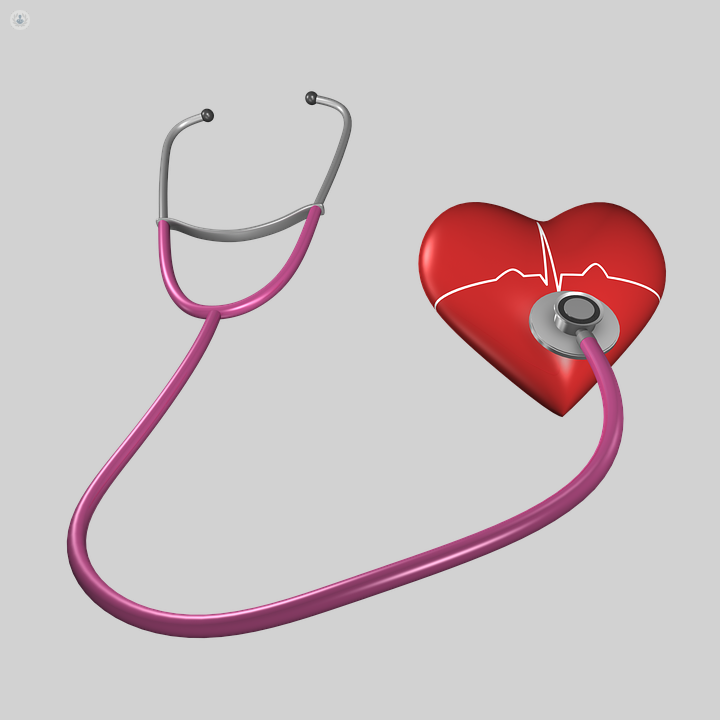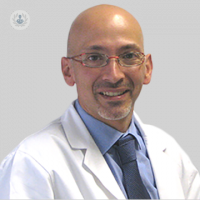Why we have cholesterol?
Written by:Cholesterol is a fatty substance found naturally in our bodies. Need cholesterol to make, for example, hormones, bile acids and vitamin D. But having high levels of blood cholesterol can be dangerous, because it can accumulate in the arteries and cause a deposition of cholesterol on the walls known as atherosclerosis.
 This deposit in the arteries causes cardiovascular atherosclerotic disease, which is currently the leading cause of death in our society. Atherosclerosis including coronary heart disease or angina and myocardial infarction, cerebrovascular disease or stroke and peripheral artery disease. Therefore, high cholesterol is a risk factor for cardiovascular disease , along with snuff, hypertension, diabetes mellitus and obesity.
This deposit in the arteries causes cardiovascular atherosclerotic disease, which is currently the leading cause of death in our society. Atherosclerosis including coronary heart disease or angina and myocardial infarction, cerebrovascular disease or stroke and peripheral artery disease. Therefore, high cholesterol is a risk factor for cardiovascular disease , along with snuff, hypertension, diabetes mellitus and obesity.
There are two types of cholesterol, and our food habits and influence the levels of both:
- LDL or bad cholesterol: The higher the level of LDL cholesterol in the blood, the greater the risk of cardiovascular disease.
- HDL or "good" cholesterol. A low level of HDL cholesterol also increases the risk of cardiovascular disease.
Causes of High Cholesterol
There are several causes that can increase LDL cholesterol, and can be divided according to whether they are intrinsic factors in the body or, conversely, can be modified:
- Causes that can not be changed: heredity determines cholesterol levels. This begins to rise towards 20 years and continues to rise until reaching 60 or 65 years. Normally cholesterol in men before age 50 tends to be higher than that of women with the same age. But after 50 years the opposite occurs and cholesterol levels appear higher in women.
- Causes that can be changed: our diet is one of the factors that determine our cholesterol levels. Saturated fats in foods of animal origin and in some vegetable oils, such as palm and coconut, should moderate in our diet. Also should avoid trans fatty acids, which are found mainly in foods made with hydrogenated oils and fats, such as bakery products, snacks or ice cream.
Moreover, excess weight tends to increase LDL cholesterol and lower HDL cholesterol to good cholesterol and increases triglycerides, which are a type of fat in the body whose abundance greatly increases the cardiovascular risk.
Atherosclerosis due
 Maintain high levels of cholesterol is risky and can lead to serious consequences because of the buildup of plaque of atherosclerosis.
Maintain high levels of cholesterol is risky and can lead to serious consequences because of the buildup of plaque of atherosclerosis.
Part of excess cholesterol can be deposited on the wall of the arteries anywhere in the body, forming atherosclerotic plaques. This plaque can narrow the vessels and makes them less flexible. If it occurs in the coronary arteries and these are blocked by plaque, it prevents blood reaching the heart, resulting in chest pain or angina.
Some plates with much cholesterol become unstable and can release cholesterol and fats in the bloodstream, which can cause a thrombus on the plate that prevents flow of blood in the artery causing a heart attack. If this happens in the arteries of the brain, we can suffer a stroke or stroke.
How to lower cholesterol levels
It has been shown that lowering cholesterol levels reduces the risk of myocardial infarction, angina, stroke , and severe cardiovascular disease. Hypercholesterolemia are accumulations of blood cholesterol above normal levels, and there are no pharmacological and pharmacological measures to address them.
A diet to lower cholesterol, reducing foods that raise bad cholesterol and avoiding alcohol and snuff, is crucial. But when these good habits are not enough, we need to resort to drugs.
To define the most suitable solution to your case, you should consult a specialist in Cardiology. This will offer the best steps to control your cholesterol, since each person requires a more or less strict depending on their characteristics control.


